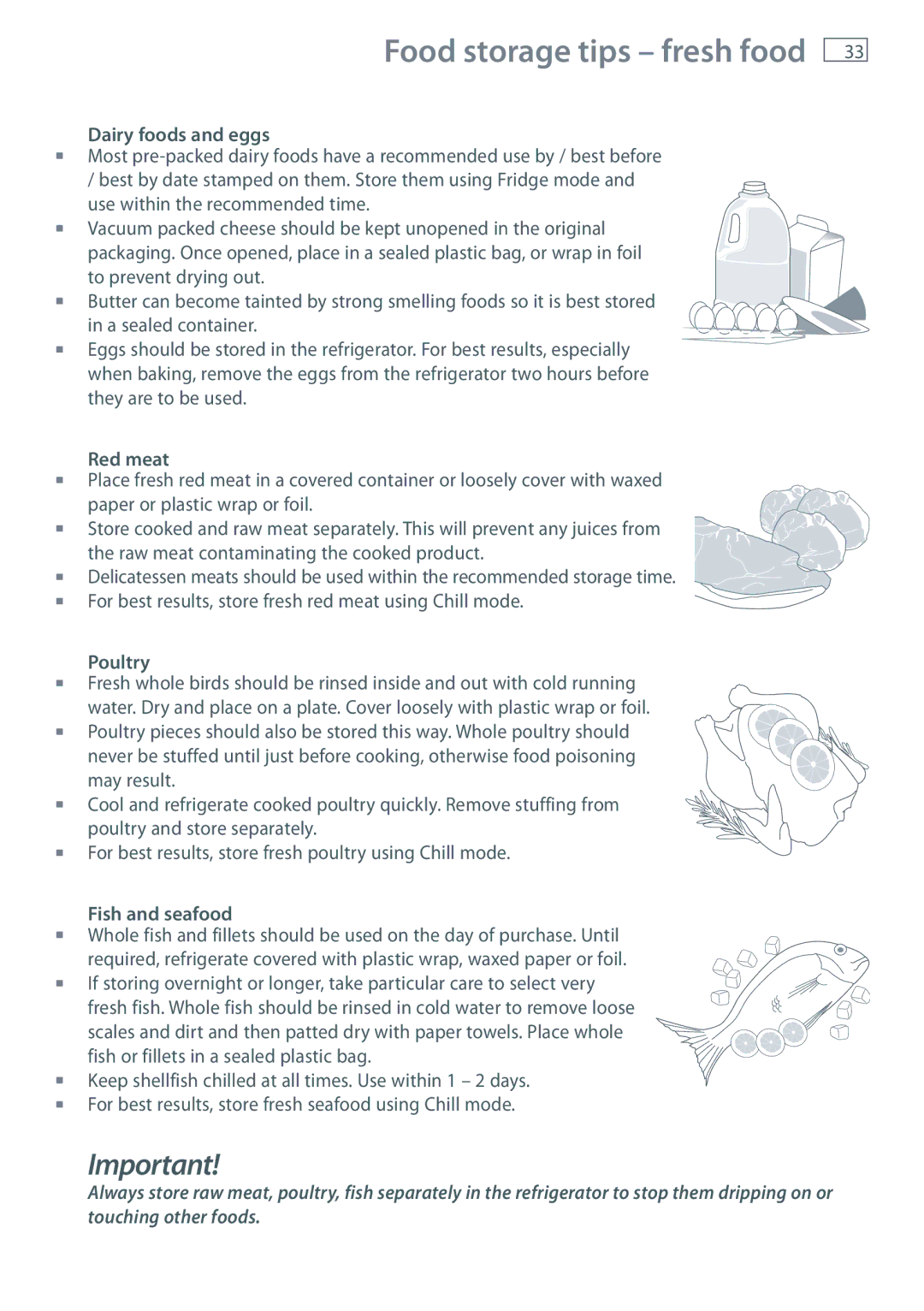
Food storage tips – fresh food
33
Dairy foods and eggs
Most
Vacuum packed cheese should be kept unopened in the original packaging. Once opened, place in a sealed plastic bag, or wrap in foil to prevent drying out.
Butter can become tainted by strong smelling foods so it is best stored in a sealed container.
Eggs should be stored in the refrigerator. For best results, especially when baking, remove the eggs from the refrigerator two hours before they are to be used.
Red meat
Place fresh red meat in a covered container or loosely cover with waxed paper or plastic wrap or foil.
Store cooked and raw meat separately. This will prevent any juices from the raw meat contaminating the cooked product.
Delicatessen meats should be used within the recommended storage time. For best results, store fresh red meat using Chill mode.
Poultry
Fresh whole birds should be rinsed inside and out with cold running water. Dry and place on a plate. Cover loosely with plastic wrap or foil. Poultry pieces should also be stored this way. Whole poultry should never be stuffed until just before cooking, otherwise food poisoning may result.
Cool and refrigerate cooked poultry quickly. Remove stuffing from poultry and store separately.
For best results, store fresh poultry using Chill mode.
Fish and seafood
Whole fish and fillets should be used on the day of purchase. Until required, refrigerate covered with plastic wrap, waxed paper or foil. If storing overnight or longer, take particular care to select very fresh fish. Whole fish should be rinsed in cold water to remove loose scales and dirt and then patted dry with paper towels. Place whole fish or fillets in a sealed plastic bag.
Keep shellfish chilled at all times. Use within 1 – 2 days. For best results, store fresh seafood using Chill mode.
Important!
Always store raw meat, poultry, fish separately in the refrigerator to stop them dripping on or touching other foods.
